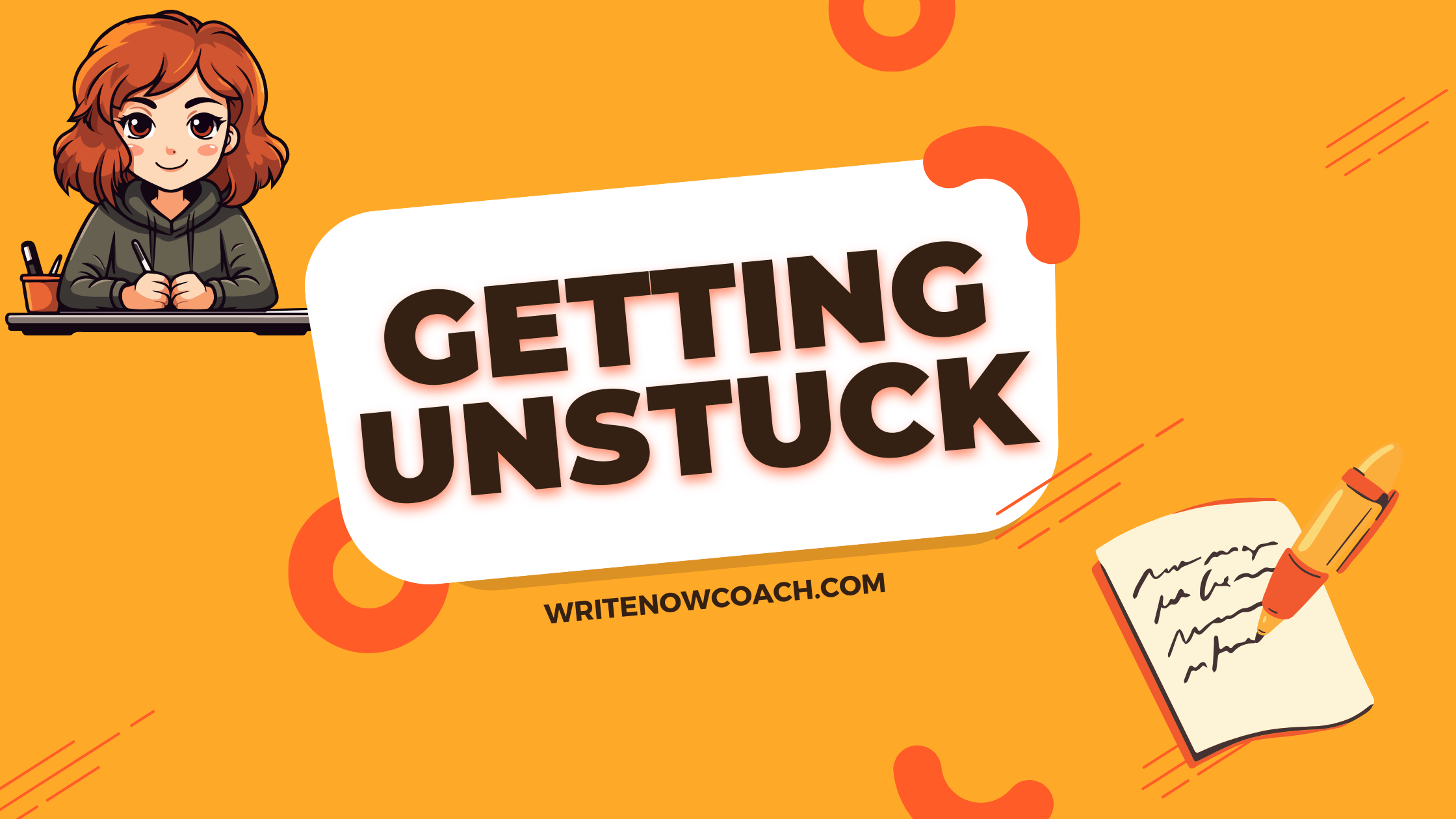Getting Unstuck
by Rochelle Melander
Do you ever get STUCK? You’ve got an idea for a good project. You’ve maybe written a good chunk of it. But it feels flat. Something isn’t working—but you don’t know what it is. Or, if you do know the problem, you haven’t figured out the solution. You’re not sure where to go next.
You avoid working on it. When you do take it out, you stare at the computer for a bit and then click on over to your favorite news or social media site.
I’ve got that problem with a few of my projects right now. For most of them it’s a big problem, like what’s my approach to this topic. For others it’s smaller things that trip me up, like what’s this character’s motivation. The result is the same. I need help getting unstuck.
I’d like to think that with a bit of time, I can solve anything. But after coaching clients and teaching writing for years, I know that spending “more time” on a writing project does not always yield positive results. Sometimes we need a fresh start to get unstuck.
In Wild Words, author Nicole Gulotta talks about discovering this prompt at a writing workshop: set a timer for five minutes and find five new ways to begin your piece.
This idea helped me think about approaching my projects in new ways. Set a timer for five minutes and consider five new ways to:
Categorize the project
Let’s say you’re writing a nonfiction book. Could it be a children’s book? Novel? Memoir? How might a mash-up make your book more engaging? Maybe you’re writing a memoir and decide to add a prescriptive non-fiction element. Or this is a romance novel and you decide to mash it up with horror!
Structure your work
Are you writing a plot-driven memoir? Could it be a collection of essays? A graphic memoir? Would you consider turning it into a novel? Would changing the structure help you enter the manuscript in a new way and get unstuck?
Narrate the story
Are you using first person? What about third? Or instead of telling the story chronologically, why not do it backwards, like the new novel Shanghailanders by Julie Min.
Approach writing
Do you always start at the beginning? Why not start in the middle or the end? Why not skip researching and just brainstorm. How about journaling before you write each day?
Think about yourself
Maybe your biggest challenge is mindset. You feel like an imposter. You don’t believe that you can be a novelist or write a nonfiction book. How could you think about yourself differently? Do you need to give yourself a new title (Queen of the Page)? Would it help to lower the stakes? Recite a new mantra?
And if all else fails…
When you can’t find a solution on your own, it helps to get help. Look at mentor texts. Ask others how they’ve done it. Talk about your project with a friend or colleague.
If you don’t have someone to talk to, I’m happy to help. Just email me, and we’ll find a time to talk.
And this is a great time to reach out. I always offer a special deal for my birthday, and this year is no different. I’m offering a new kind of coaching session: puttering sessions. These brainstorming sessions are designed to help you solve a problem—brainstorm ideas for a project, think about ways to make writing a habit, or even consider ways to market your book. We’ll talk through your challenges and find loads of possible solutions. Here’s the catch: I’ll be puttering around my house while we talk—sweeping, dusting, and watering plants! For $75, you get a 45-minute session. I have ten spots available for May and June.









